Here’s everything Canadians and Americans need to know about Europe’s annual television event that’s watched by around 200 million viewers every year…
Anticipation for the 2021 Eurovision Song Contest is growing, but you might be sitting there, scratching your head and wondering what’s the big deal. The iconic European cultural event is a televised, annual singing competition with contestants representing their home country. The show is a phenomenon in Europe and beyond, drawing more annual viewers than the Super Bowl. But, despite it’s success… it has remained relatively unknown in North America, that is until Netflix released the Will Ferrell film Eurovision Song Contest: The Story of Fire Saga in June 2020. The wacky film was a massive hit for the streaming service and even received a nomination for Best Original Song at the 93rd Academy Awards (for “Husavik”).
This year’s (real) Eurovision contest will be the 65th to be broadcast throughout Europe, making it one of the longest running television shows in the world. Of course, as the contest has grown throughout the years, a different type of competition has emerged aside from individual countries trying to show off their catchy three-minute tunes — bizarre costumes, staging, and choreography have opened up another way to make international pop history. As many of its most unforgettable moments prove, some of the best Eurovision performances have simply been about a country submitting an outrageous performance with the simple hopes that millions of fans will burst into applause.
So in preparation for the big event, which this year takes place on May 18, 20 and 22, 2021 in Rotterdam, the Netherlands, we’ve rounded up everything you need to know to join in on all of the Eurovision fun. Because, let’s face it… a Will Ferrell movie can’t be your only point of reference before tuning in.
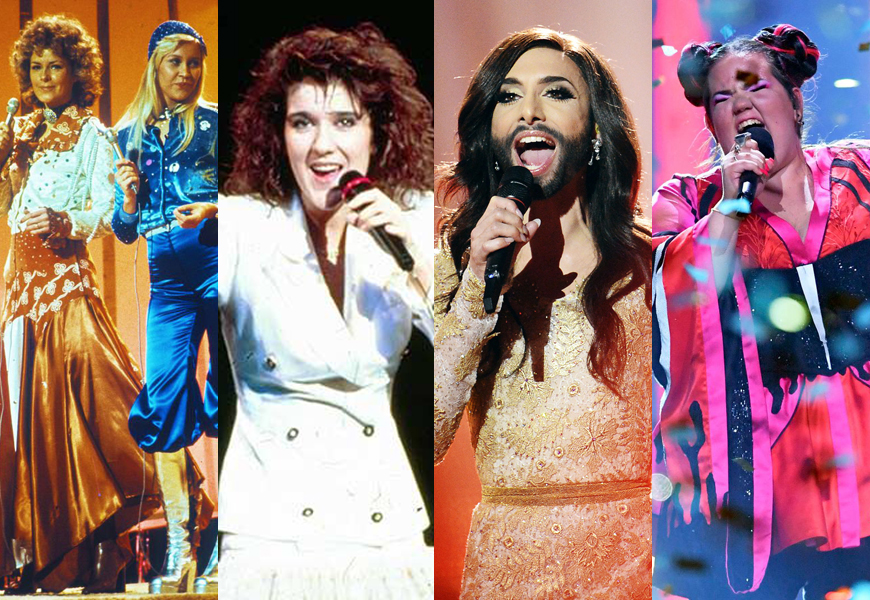
What is Eurovision?
Eurovision began as an idea back in the mid-1950s as a way for Europe to come together after World War II had ripped it apart. With that in mind, the organizers wanted each country to showcase a song that was indicative of their culture. This first ever Eurovision Song Contest took place on May 24, 1956 and it was a pretty revolutionary effort for its time. Television was still in it’s early years and the Olympics hadn’t yet become an international broadcasting event. Eurovision was one of the first major attempts to hold an event that people from a wide range of countries could watch.
Through the years the annual competition has acted as a launching pad to stardom. In 1974 Swedish pop royalty ABBA used a performance of their song “Waterloo” to kick off their career and French-Canadian chanteuse Celine Dion’s win in 1988 was her biggest claim to fame outside of Canada before Titanic came out in 1997.
How does it work?
First, all of the participating countries have a national contest where they vote on which original song will represent the country at Eurovision. The song may not exceed three minutes, no more than six people can be on stage at a time, and all vocals must be sung live.
The 2021 competition is set to be the 65th edition of the Eurovision Song Contest with 39 different countries participating. (The record for the most countries participating in a year is 43 countries, which happened in 2008 and 2011).
Six countries automatically qualify to the Grand Final: The Big Five (United Kingdom, France, Germany, Spain, Italy) and the host country that year. As the winner of the 2019 contest (the 2020 Eurovision Song Contest was ultimately cancelled because of the ongoing coronavirus outbreak), the Netherlands is the host of the 2021 edition. Whoever wins this year will host next year, and so on.
The remaining participants are divided into two semifinal rounds. The top ten countries from each semifinal advance to the Grand Final. Thus, 26 countries compete in the Grand Final and get three minutes on stage to shine. Immediately after the last performance, public voting begins as does professional juries for each country.
Voting
The voting system can be a little difficult to wrap your head around… But, most simply the results of the Eurovision Song Contest are decided by 50% televote and 50% jury voting.
Public voting is just like American Idol, Dancing With The Stars or any other voting based television competition. The public votes for their favourite song via text message or telephone.
Each of the 39 competing countries has a jury of five people. Jury members are made up of music industry professionals who are asked to evaluate all of the performances the night of the finale (excluding their own countries performance) based on: vocal capacity of the singer, the performance on-stage, the composition and originality of the song, and the overall impression of the act. The rankings of each of the five jury members are averaged to create a top 10. This top ten is then converted into points from 1-7, 8, 10 and then 12 points for the act the country’s jury liked the most.
The results are announced in two parts. The first results to be announced are the results of each of the 39 national juries. Spokespersons from each of the countries are called upon via satellite link to reveal how they are rewarding their points.
Once all of the jury points have been revealed we will know 50% of the results. Then the public televoting results will be announced. The televoting results from all of the countries are added together and the hosts (actress and presenter Chantal Janzen, singer and commentator Jan Smit, and Eurovision legend Edsilla Rombley, who represented the Netherlands twice at the contest, in 1990 and 2007) will reveal the points going to the country who got the 26th highest amount of televoting points to the country that received the 11th highest amount of televoting points.
The hosts will then reveal who placed 10th to 5th with the televote in a slower speed. When we reach the final four countries whose points have not been announced, then the tension builds. Slowly but surely the points are announced for the final four countries.
The winner receives a trophy, no cash and bragging rights. Oh, and their country gets to host the competition next year.
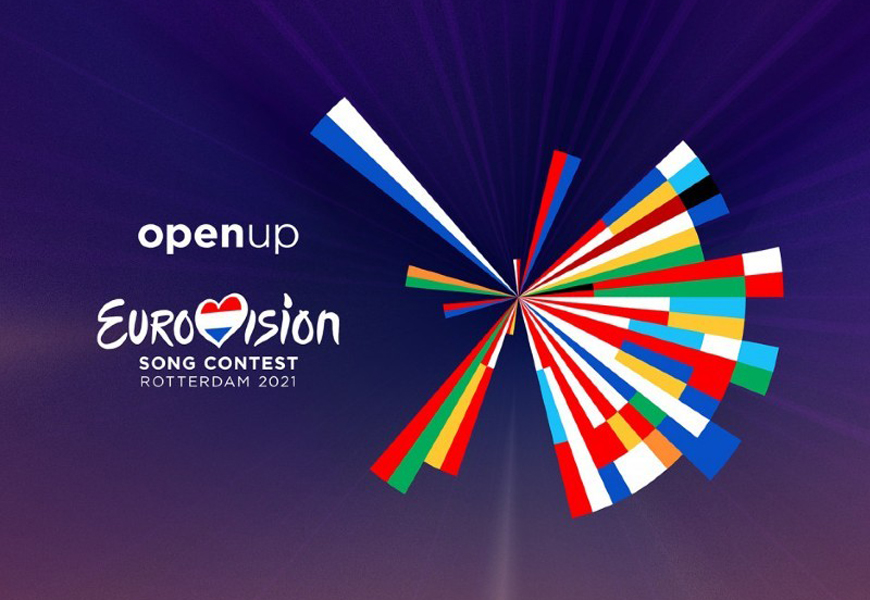
Eurovision 2021!
Taking place at the Rotterdam Ahoy arena in the Netherlands, it has already been confirmed that the venue will allow a COVID-safe live audience of 3,500 people.
And though things certainly won’t be the same this year, after the cancellation of the 2020 event, Europop fans from all over the world over are looking forward to plenty of over-the-top moments.
When does it take place?
Eurovision 2021 will take place across three nights on May 18, 20 and 22, 2021.
The first semi-final of the 2021 Eurovision Song Contest takes place on Tuesday May 18, 2021 and The Netherlands Duncan Laurence, who is the most recent winner, will open the show. Then the first group of 16 countries will compete for a place in Saturday’s Grand Final. The competing countries on night one are: Lithuania, Slovenia, Russia, Sweden, Australia, North Macedonia, Ireland, Cyprus, Norway, Croatia, Belgium, Israel, Romania, Azerbaijan, Ukraine and Malta.
The second semi-final of the 2021 Eurovision Song Contest will take place on Thursday, May 20, 201 and features 17 different acts taking to the stage in the hope of securing a place in Saturday’s Grand Final. Competing this evening are: San Marino, Estonia, Czech Republic, Greece, Austria, Poland, Moldova, Iceland, Serbia, Georgia, Albania, Portugal, Bulgaria, Finland, Latvia, Switzerland and Denmark.
All the qualifying acts from the semi-finals will then join hosts Netherlands plus the ‘Big Five’ countries (United Kingdom, France, Germany, Spain, Italy) in the 65th Eurovision Song Contest Grand Final that will take place at The Ahoy in Rotterdam on Saturday, May 22, 2021.
Duncan Laurence will hit the stage one more time to perform his winning song “Arcade” from 2019. Plus, there will be a multi-act performance entitled “Rock The Roof,” which will feature six former Eurovision winners – Lenny Kuhr (1969), Teach-In (1975), Sandra Kim (1986), Helena Paparizou (2005), Lordi (2006) and Måns Zelmerlöw (2015).
Note: The semi-finals will be around three hours long, whilst the Grand Final will be around four hours long – get those snacks ready.
How to watch
In Europe, the 2021 Eurovision Song Contest will be broadcast live on the BBC, with the always hilarious Graham Norton commentating.
In Canada, multi-cultural broadcaster OMNI Television will broadcast the 2021 Eurovision Song Contest. As has been the case in previous years, the 2021 contest will mostly likely be broadcast to Canada with a delay.
If you’re in the US things are a little trickier, because the show doesn’t have an American broadcast home. With that in mind, the best option to watch Eurovision in the US is to watch the whole thing online on the BBC website.
It’s worth noting that in 2019, the Eurovision Grand Final was livestreamed on YouTube. We don’t know yet whether this will be the case for 2021. Once we know more, we’ll update this article.
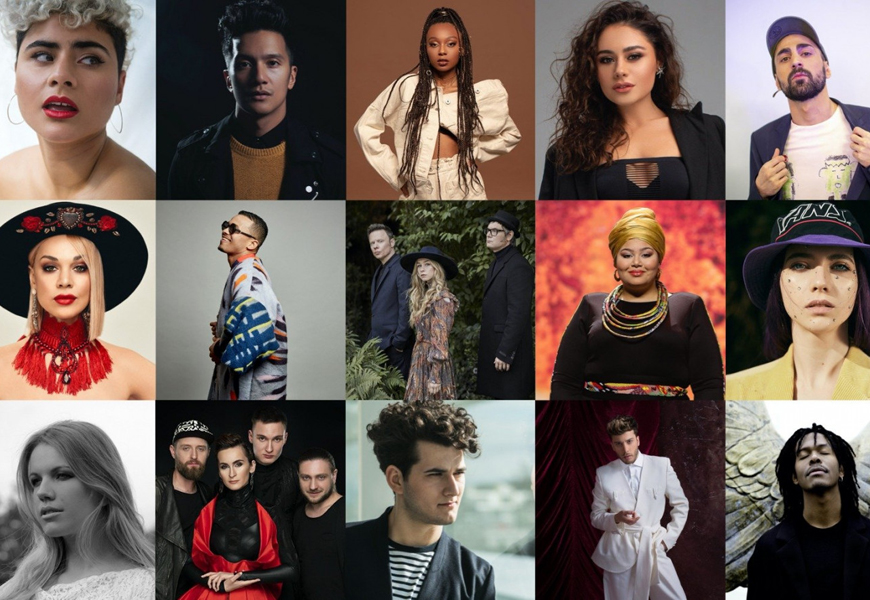
Who to watch out for?
Who will win the 2021 Eurovision Song Contest? Bookmakers have predicted Malta (Destiny — “Je Me Casse”) with best odds… but, this contest is unpredictable!
Watch for insanely catchy tracks from: Azerbaijan (Efendi — “Mata Hari”), Croatia (Albina — “Tick-Tock”), Sweden (Tusse — “Voices”), Lithuania (The Roop — “Discotheque”), Iceland (Daði og Gagnamagnið — “10 Years”), Moldova (Natalia Gordienko — “Sugar”), France (Barbara Pravi — “Voilà”), Italy (Måneskin — “Zitti e buoni”), Norway (Tix — “Fallen Angel”), United Kingdom (James Newman — “Embers”) and more.
Need a music preview before the sitting down for the semi-finals? You’re in luck because there’s an official recap of all 39 songs competing at this year.
That’s it, that’s all! Enjoy the 2021 Eurovision Song Contest and good luck getting those songs, and accompanying performances, out of your head!


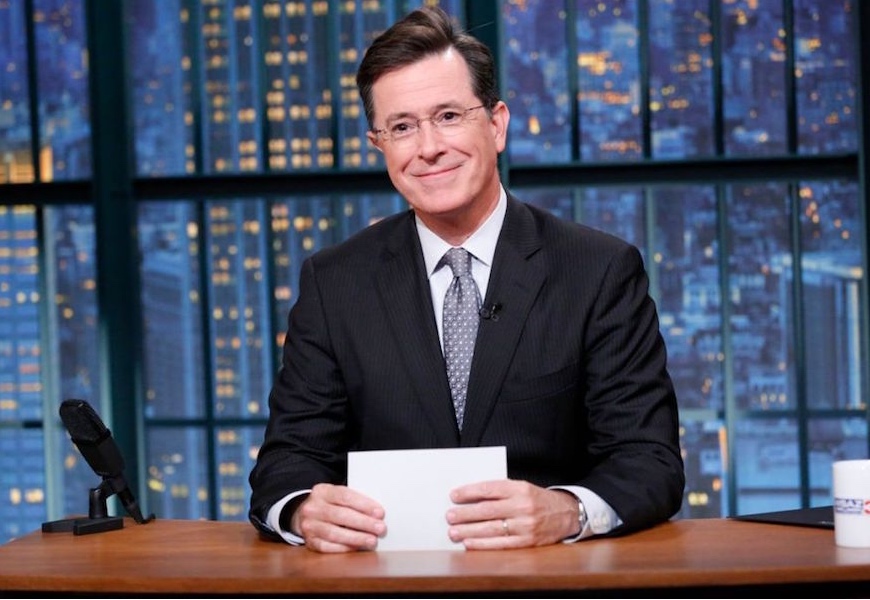
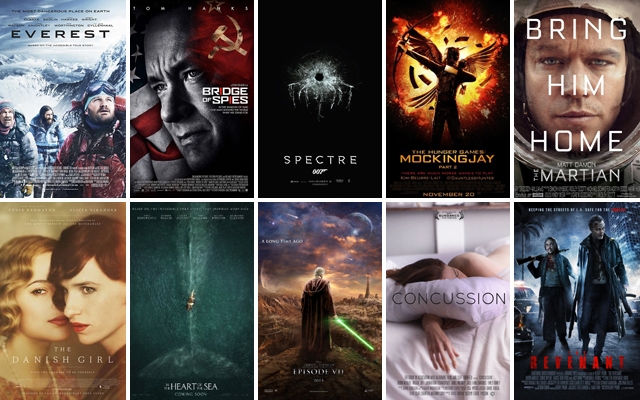
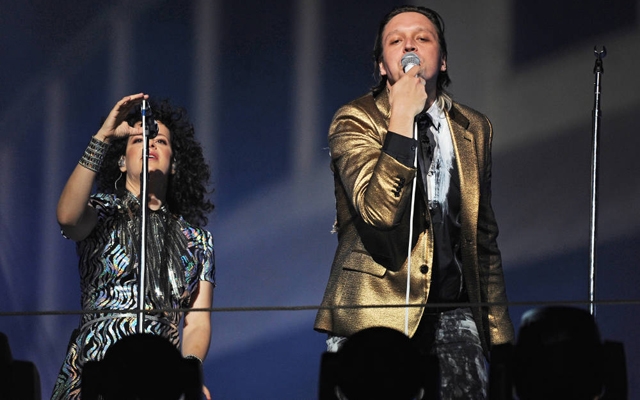



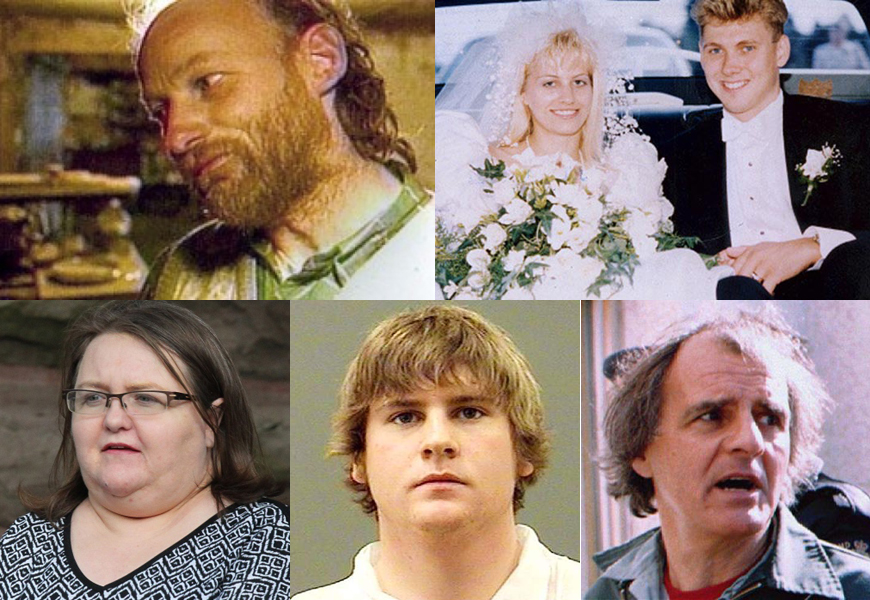
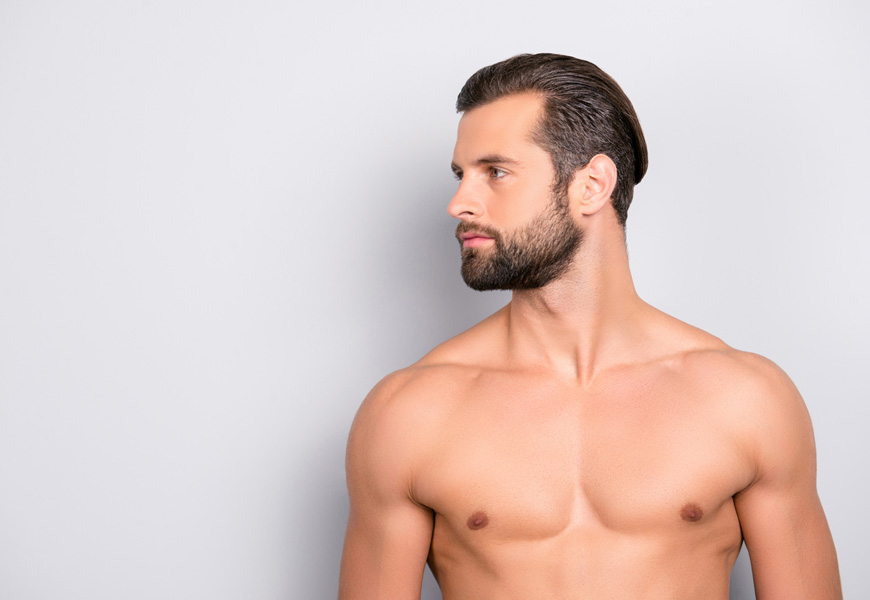

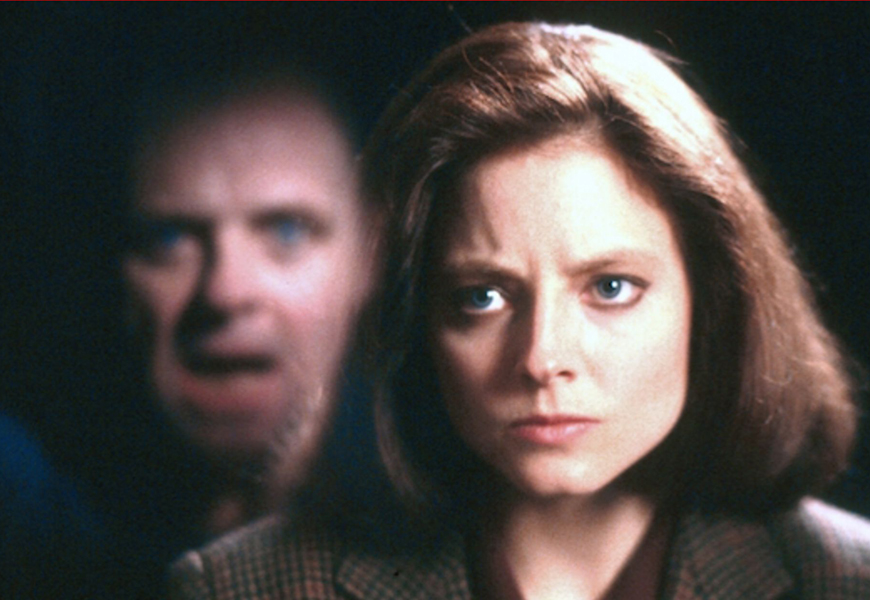
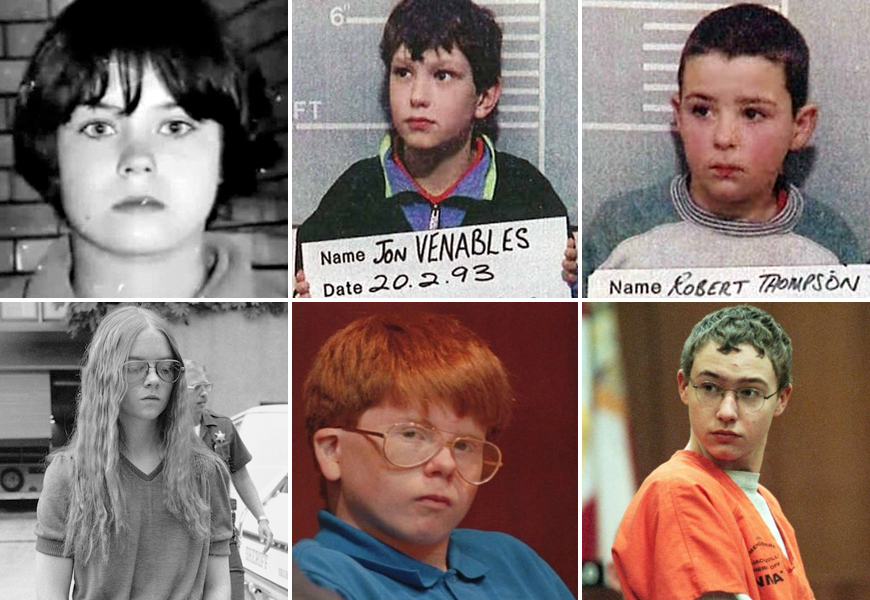
Is there requirements for who can represent a country? Like are these known artists prior to the contest? How is Flo Rida in this?